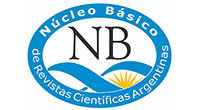Towards a Children’s Theater without «children»
Sexual Politics and (un)becoming Heterosexual Childhood
DOI:
https://doi.org/10.24215/23142502e053Keywords:
theater, childhoods, political signifier, child, feminismsAbstract
The aim is to problematize children´s theater, as a territory for sexual political intervention, that prioritizes some economies over others. To do so, two plays, which were staged at the Centro Cultural Pasaje Dardo Rocha de La Plata (Buenos Aires, Argentina) in 2019, will be analyzed. Based on critical feminist perspectives, children as spectators, will be understood as a policitcal signifier, meaning what designates the position of a subject and, at the same time, produces what constitutes the outside. According to this, there will be iterable practices, as quotations, that turn heterosexuality into a mandatory regime for childhood. Looking for the political subject, make permeable the imperatives of a heterosexual economy, setting aside from what is intelligible, those things that are excluded from children’s symbolic universe.Downloads
References
Ahmed, S. (2018). Vivir una vida feminista. Bellaterra.
Biancotto, D. (2019, 20 de julio). La plaza de los sueños perdidos[Obra teatral]. La Plata: Centro Cultural Pasaje Dardo Rocha.
Bustelo Graffigna, E. (2012). Notas sobre infancia y Teoría: un enfoque latinoamericano. Salud Colectiva, 8(3), 287-298.
Butler, J. (2018). Cuerpos que importan: sobre los límites materiales y discursivos del «sexo». Paidós.
Casella, G. (2020). Teatro para niños y performatividad de género. El teatro infantil platense como estrategia de crianza heteronormada [Tesis de maestría, Facultad de Bellas Artes de la Universidad Nacional de La Plata]. http://sedici.unlp.edu.ar/handle/10915/98494
Coordinadora Universitaria por la Disidencia Sexual (Eds.) (2011). Por un feminismo sin mujeres. Fragmentos del Segundo Circuito Disidencia Sexual. Territorios Sexuales Ediciones.
Diker, G. (2009). ¿Qué hay de nuevo en las nuevas infancias?. Universidad Nacional de General Sarmiento.
Dubatti, J. (2012). Introducción a los estudios teatrales. Propuedéutica. Atuel.
Hooks, b. [1984] (1992). El poder de descreer. Cambiando las perspectivas sobre el poder. En S. Chejter (Comp.), El sexo natural del Estado. Mujeres: alternativas para la década de los 90 (pp. 161-172). Nordan.
Richard, N. (2011). POSTFACIO / Deseos de…¿Qué es un territorio de intervención política?. En Coordinadora Universitaria por la Disidencia Sexual (Eds.), Por un feminismo sin mujeres. Fragmentos del Segundo Circuito Disidencia Sexual (pp. 159-178). Territorios Sexuales Ediciones.
Velázquez, L. (2019, 20 de julio). La Odisea, la historia de un viaje casi imposible [Obra teatral]. La Plata: Centro Cultural Pasaje Dardo Rocha.
Wittig, M. [1992] (2006). El pensamiento heterosexual. En El pensamiento heterosexual y otros ensayos (pp. 45-57). Egales.
Downloads
Published
How to Cite
Issue
Section
License
Copyright (c) 2023 Germán Casella

This work is licensed under a Creative Commons Attribution-NonCommercial-ShareAlike 4.0 International License.
According to these terms, the material can be copied and redistributed by any means or in any format as long as a) the author and original source of the publication are quoted (magazine and URL of the work), access to the license is provided and whether changes have been made is mentioned; and b) the material is not used for commercial purposes.
The cession of non-exclusive rights means that after the publication (post print) in Boletín de Arte the authors can publish their work in any language, means and format; in such cases it must be mentioned that the material was originally published in this magazine.
Such cession also means the authorization of the authors for the work to be collected by SEDICI, the institutional archive of the National University of La Plata, and to be spread in the databases that the editorial team considers appropriate to increase the visibility of the publication and its authors.
Moreover, the magazine encourages the authors to deposit their productions in other institutional and thematic archives under the principle that offering the society the scientific and academic production without any restrictions contributes to a greater exchange of the global knowledge.
































